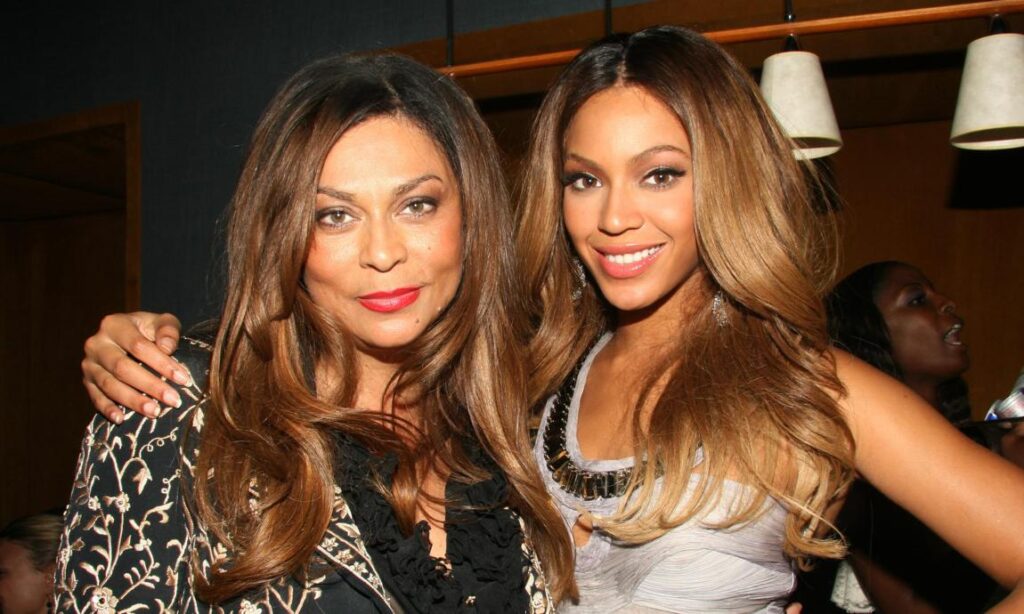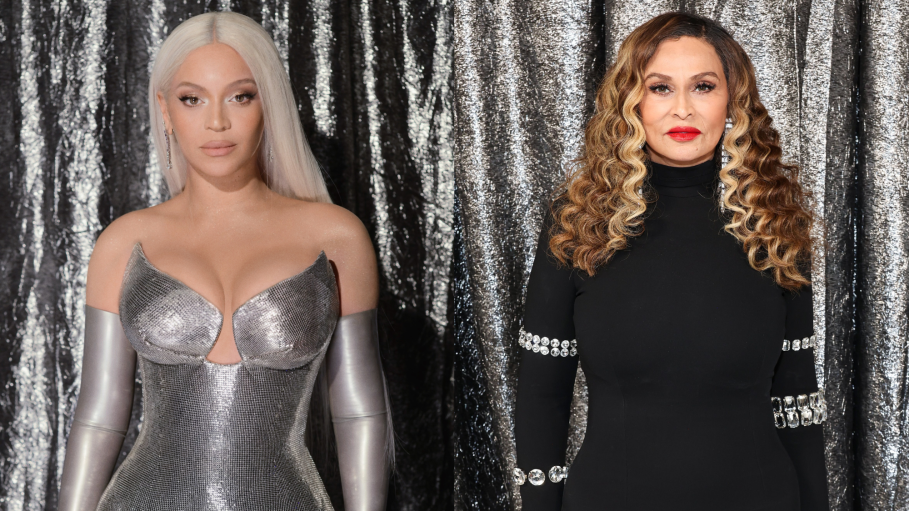In the face of baseless speculations surrounding Beyoncé’s appearance, Tina Knowles, the fierce matriarch and mother to the iconic singer, took to Instagram to deliver a powerful and unapologetic defense against the unfounded rumors of skin-whitening. The controversy arose after Beyoncé’s striking appearance at the global premiere of “Renaissance: A Film By Beyoncé” at the Samuel Goldwyn Theatre in Los Angeles.
Tina Knowles, a force to be reckoned with, utilized her Instagram platform to address the swirling rumors head-on. She shared a fan-made video of Beyoncé performing her GRAMMY-winning anthem, “Brown Skin Girl,” alongside a vehemently worded caption that sought to set the record straight.

Expressing her frustration, Tina dismantled the narrative that emerged from Beyoncé’s appearance in the film “Renaissance,” where silver aesthetics were the thematic focus. She dismissed accusations of skin-whitening and clarified that the choice of silver attire and hair was a deliberate fashion statement in line with the film’s theme.
Tina did not mince her words when addressing those perpetuating the rumors, labeling them as “bozos” driven by hatred and jealousy. The indignation escalated as Tina revealed that someone from TMZ had contacted Beyoncé’s hairstylist for comments on the alleged desire to be white, prompting Tina to question the entitlement of discussing her daughter’s blackness.
In a poignant defense, Tina challenged the ignorance surrounding black women wearing platinum hair, pointing out its historical presence among black celebrities dating back to the days of Etta James. She skillfully dismantled the notion that every black celebrity embracing platinum hair was attempting to conform to a white aesthetic.
Tina passionately defended her daughter, emphasizing Beyoncé’s unwavering work ethic, talent, and resilience in every aspect of her career. She condemned the perpetuation of jealousy, racism, sexism, and double standards by detractors, urging for celebration or indifference if one couldn’t appreciate Beyoncé’s achievements.
Concluding her resolute statement, Tina expressed being “fed up” with the groundless criticisms and asserted her right to defend her daughter’s character. Despite acknowledging that Beyoncé might be displeased with her outspoken stance, Tina remained steadfast, highlighting Beyoncé’s commitment to minding her own business, uplifting black women, and supporting underdogs.
Tina Knowles’ unyielding defense not only combats the baseless rumors surrounding Beyoncé but also serves as a potent call-out against the broader issues of racism, sexism, and jealousy embedded in such narratives. In the face of adversity, Tina stands as a formidable advocate for her daughter’s integrity and legacy.




